Halloween is just days away – and with “Joker” smashing box-office records, it seems inevitable that throngs of film fans will dress as killer clowns for the festivities that await.
But in Hong Kong, where pro-democracy, anti-government protests have stretched on for four months, the mask of the Joker holds greater weight – and reveals a divide between some protesters who see themselves reflected in him, and others who are horrified at the comparison.
“Joker,” which tells the story of a failed stand-up comedian who turns to murder in Gotham City, is ultimately about the making of a monster. WarnerMedia, the parent company of CNN, has said the movie does not aim to “hold this character up as a hero” – nonetheless, some in Hong Kong seem to have drawn inspiration from the character and the film.
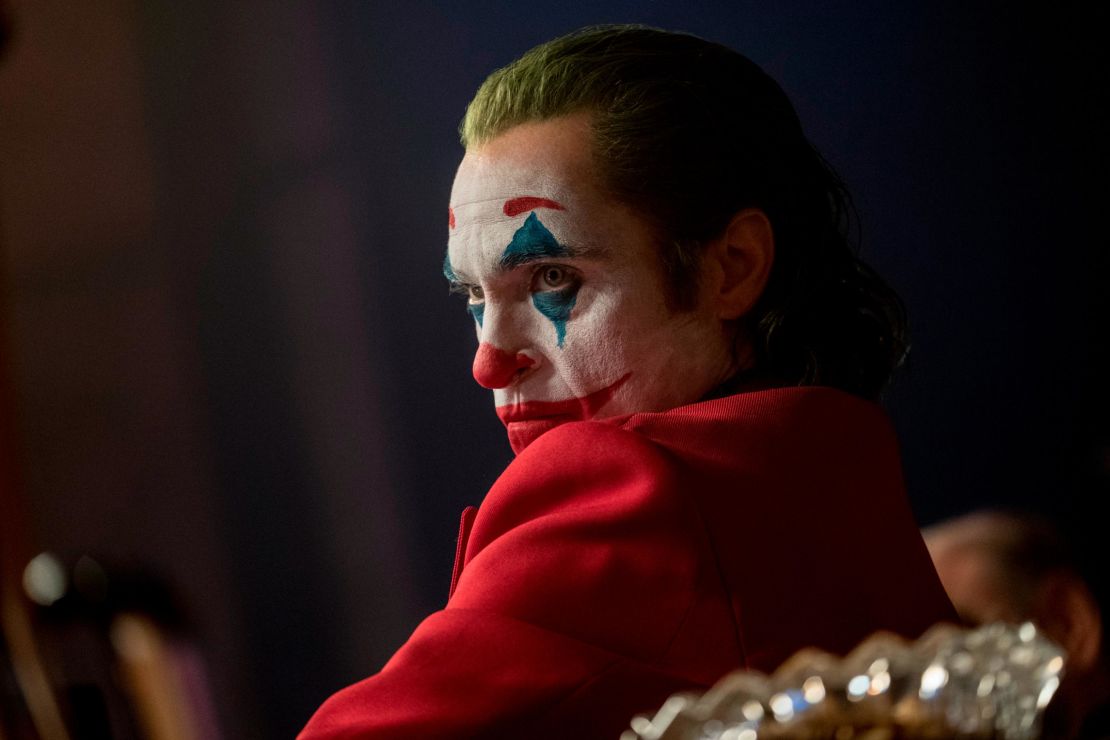
Viewers on social media point out that both Gotham and Hong Kong are home to groups of discontented people who feel abandoned by their government and a rich elite. In the movie, Gotham citizens and police officers fight in a subway station, an eerie echo of such scuffles in Hong Kong’s own stations. At the end of the film, rioters vandalize parts of the city, with what appears to be smoke or gas drifting through the air – similar to the tear gas, graffiti and smashed glass that have become routine in Hong Kong.
In a twist of coincidence, “Joker” was released in Hong Kong just one day before authorities used colonial-era emergency powers to ban face masks and face coverings during public assemblies. In destructive protests over the following week, outraged demonstrators wore all types of face coverings in defiance of the ban – including Joker masks and makeup in the style of the Joker (both Joaquin Phoenix and Heath Ledger versions).
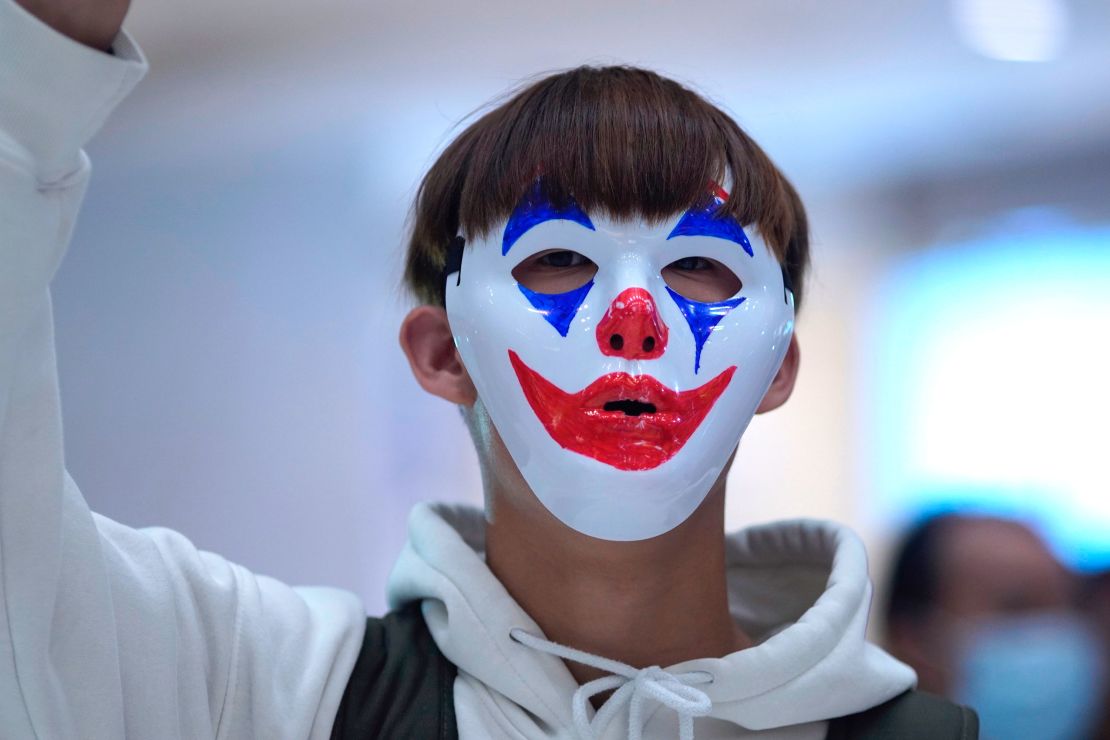
“After today, Hong Kong needs Joker,” read one post on the online protest site LIHKG the day after the ban was announced. Another user called the Gotham rioters “martyrs,” and the Joker “the symbol of the resistance and the spiritual leader of the rebels.”
Another post paired characters in “Joker” with equivalent Hong Kong figures. For instance, it compared the Joker with Edward Leung, a pro-Hong Kong independence activist who was jailed for his part in violent 2016 demonstrations. Meanwhile, Batman’s father Thomas Wayne, a callous and wealthy mayoral candidate, was equated with Hong Kong leader Carrie Lam, who protesters accuse of being out of touch with the public.
Kimmy Woo, a student who recently watched “Joker,” also saw an analogy for Hong Kong’s government in the film. In one scene, the Joker accused his therapist of not listening to a thing he said in all their weekly sessions. “It’s like the government now,” Woo said. “No matter how people express their demands, the government still isn’t listening.”
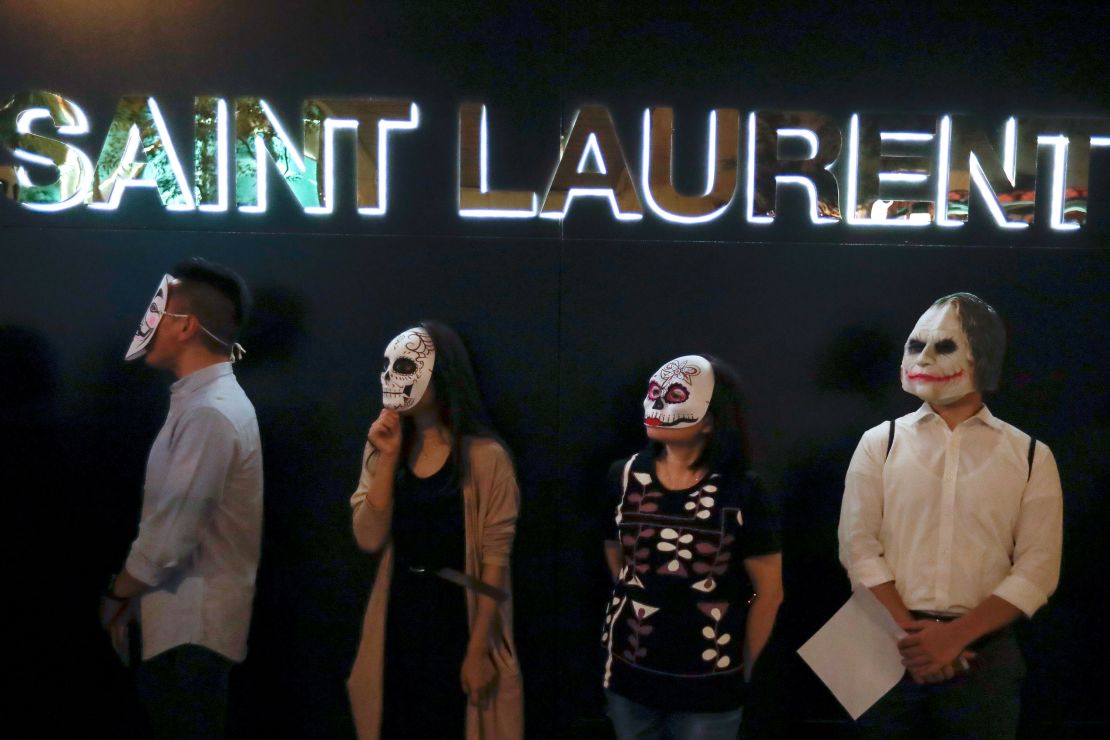
Deacon Lui, a local photographer who has covered the protests, recently posted photos of himself in Joker makeup. “The movie is about a minority in society constantly being ignored by those who hold the resources,” he told CNN. “They do not have the proper way to express their anger or such negative emotions … I think it’s out of desperation that (the Joker) went crazy and chose to rebel.”
Similarly, with Hong Kong protesters accusing police of brutal force, “people feel like they are helpless and they don’t have a way to express it,” Lui said.
In his Joker-inspired photo, Lui tips his head out a tram window, face painted like the Joker and illuminated by the neon city lights. “Is it just me or is it getting crazier out there?” the caption reads – a quote from the film.
Despite their best efforts, however, these Joker fans are not making headway within the protest movement – rather, many more are trying to distance themselves from the film. Posts that draw these comparisons are often heavily downvoted, with comments urging the community not to aspire towards the Joker.
One post on LIHKG with more than 200 upvotes praised the movie’s artistic value and plotline – but said “it is totally inappropriate to compare it with the situation in Hong Kong.”
“I hope that everyone will stop using Joker to describe Hong Kong, as it will only bring negative results, no matter on the global publicity level or on the personal level,” it said.
Another popular post called the Joker a criminal, and Gotham a city of “fallen morality.”
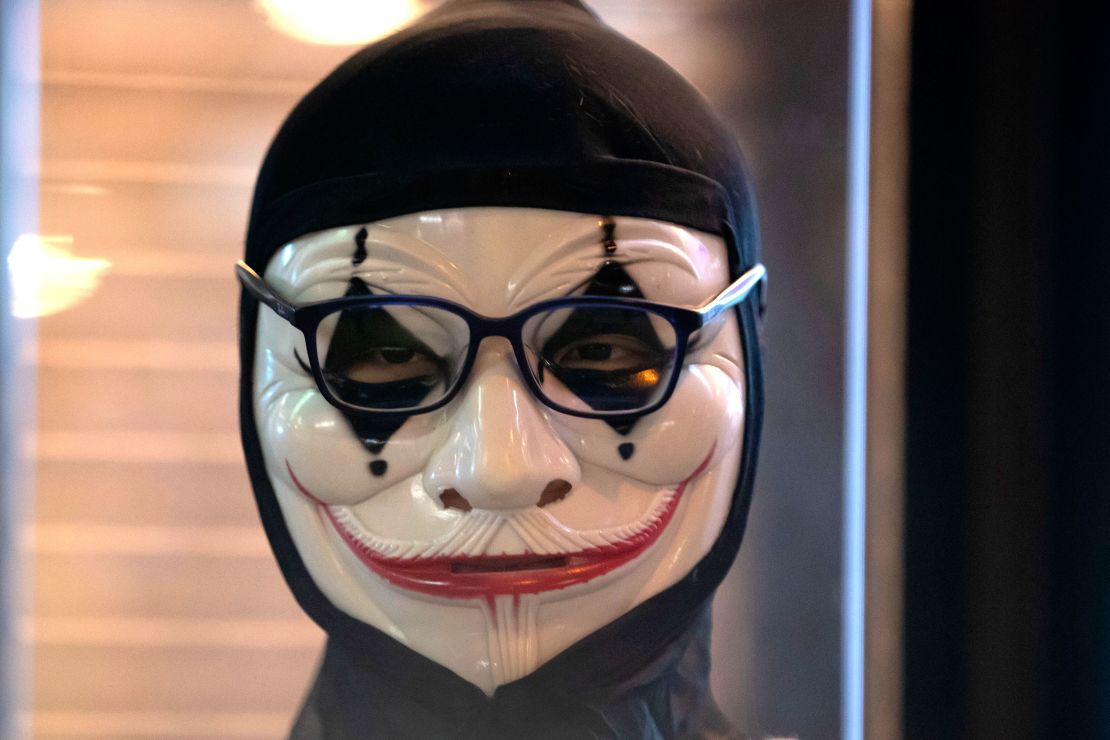
“Please don’t make the Joker into a leader of the resistance,” the post read. “(The movie) is really good. But at this moment, it is dangerous, and the danger lies in the fact that people may interpret it intentionally or unintentionally into the current situation in Hong Kong.”
Woo also warned of the danger of glorifying the Joker, saying she hoped protesters wouldn’t try to emulate him or his fictional followers.
“In the end, the masked people killed (Thomas Wayne and his wife), and everyone was excited, feeling like they were doing the right thing,” she said. “But we can’t do that … If Hong Kong people really acted like the Joker, then Hong Kong would be doomed.”
These responses reveal how the protesters see themselves – not as criminals or vandals, but as “freedom fighters,” as one online comment put it. The Joker takes pleasure in causing chaos – but the protesters argue they have been forced into this fight by an unresponsive government.
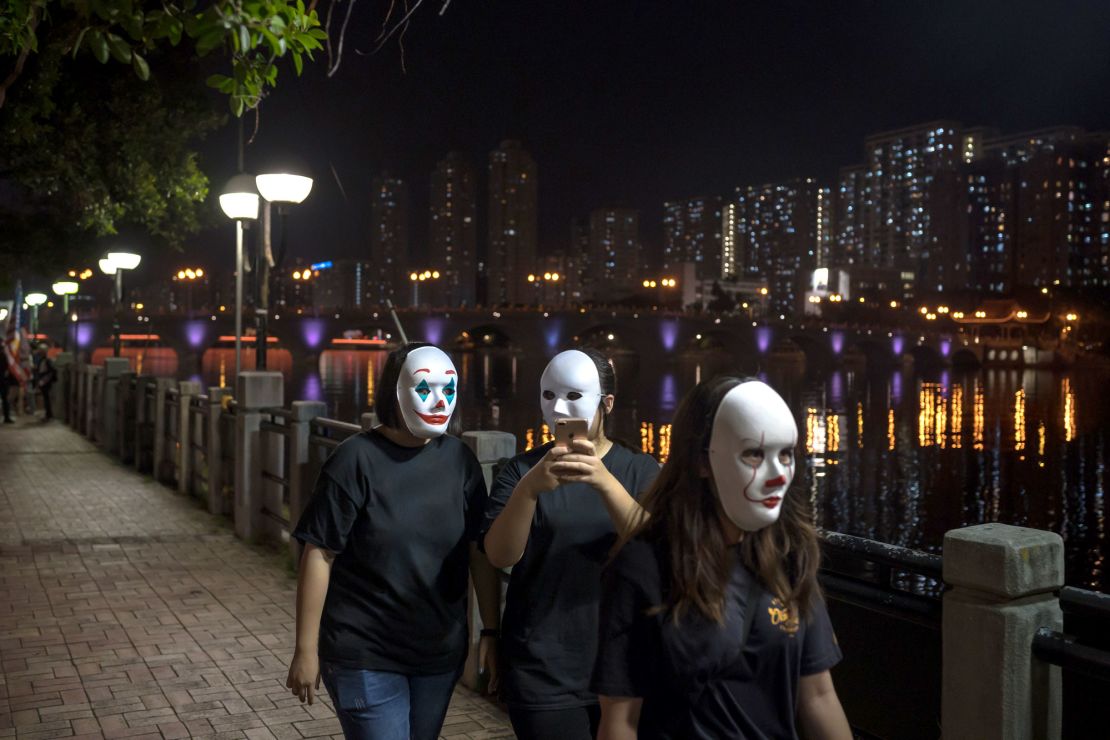
This distinction is an important one to them, as they often argue that any violence or destruction on their part have justified causes rather than being unnecessary violence. When criticized for vandalizing subway stations or smashing bank ATMs, protesters often say they have been given little other choice, and that it’s all for a greater good.
Still, the destruction has begun to drive away moderates in Hong Kong – which may be another reason protesters don’t want to be compared with the Joker. At a time of wavering public support, aligning themselves with the Joker might only bring bad PR, argued several comments on LIHKG.
Even Lui said he didn’t intend his photos to be an endorsement of the Joker’s violence – he was just trying to portray the societal tensions present in both the film and in real life.
The Joker wasn’t a hero, he said. Like many of the Hong Kong protesters, the Joker was “just a guy acting out of desperation.”




















